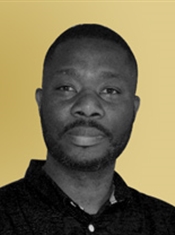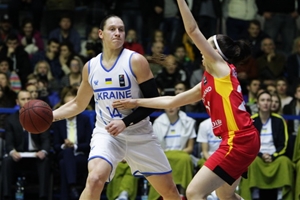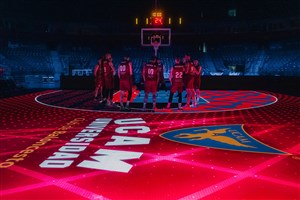
Five takeways from first games of FIBA Africa Champions Cup for Women 2016
SHEFFIELD (Julio Chitunda’s African Message) - Seven games into this year's FIBA Africa Champions Cup for Women (ACCW) in Maputo, Mozambique, and it looks as if it is going to be business as usual for the top dogs.
While Primeiro D'Agosto have won two of their Group B games in a row to begin their ACCW title defence, InterClube de Luanda - the most successful side in the tournament's history with four continental titles achieved over the last six editions - have made a statement by outplaying hosts Ferroviario de Maputo in Group A opener.
Although I am not in Maputo, I have followed most games on FIBA's YouTube channel and below are five ACCW 2016 facts that couldn't go unnoticed over the course of the first three days of competition.
1. The WNBA and EuroLeague Women influence
Over the course of the past few years, a number of players with WNBA and EuroLeague Women experience shone in the ACCW, and this year is no different.
Take Dannielle McCray and Sequoia Holmes as examples.
In her ACCW debut, McCray, a former Connecticut Sun guard, has made her present felt, leading D'Agosto with a team-high of 18 points per game over the first two contest. But it's the 29-year-old’s leadership that can’t go unnoticed either.

Sequoia Holmes is playing her third ACCW
In the meantime, Holmes, an ACCW winner who has featured in the WNBA for the Houston Comets and Phoenix Mercury, remains a key element for InterClube.
2. Algerians GS Petroliers look promising
A dominant force in Algeria's women basketball, Groupement Sportif des Petroliers (GSP) are actually far better than originally thought. Half of the team is filled by Algerian international like Nesrib Taibi, Ikbak Chenaf and the eternal Rachida Belaidi. Also, in the Congolese duo of Thethe Kazadi and Mireille Nyota, the North Africans have their strongest players in the paint.

Rashida Belaidi leads GSP in scoring
Despite making their ACCW debut with a loss to D'Agosto, the Algerians might cause some damage for the remainder of the tournament.
And if Belaidi, who turned 37 on Monday, continues running the floor and making three-pointers the way she did in Game 1, then, expect something big from GS Petroliers.
3. ACCW MVP shines at home
Reigning ACCW MVP Leia Dongue returned to her native Maputo in style, providing the Angolans of D'Agosto with an inspiring offensive display.

Leia Dongue (MOZ)
On Day 1, the Mozambique international made all seven of her field-goal attempts en route to a 17-point performance. It was Dongue's first appearance on Mozambique soil since she pulled out her national team for the FIBA AfroBasket Women 2015.
4. Cossa hits a tournament record
While Dongue has been impressive, her national teammate Anabela Cossa made sure to do even better, establishing a tournament record with six three-pointers made. In the process, her Ferroviario de Maputo emerged from the ashes to beat Kenya Ports Authority 84-58 as she finished with a tournament-high 22 points.

Anabela Cossa was on fire hitting six three-pointers as Ferroviario beat KPA of Kenya in Group A
5. Local fans  It's been nine years since a Mozambique club - Desportivo de Maputo - last won the trophy as ACCW hosts. It comes as no surprises that locals have turned out in big numbers cheering on their heroes Ferroviario de Maputo and A Politecnica. But judging by the first games, both local teams have the hardest mountains to climb.
It's been nine years since a Mozambique club - Desportivo de Maputo - last won the trophy as ACCW hosts. It comes as no surprises that locals have turned out in big numbers cheering on their heroes Ferroviario de Maputo and A Politecnica. But judging by the first games, both local teams have the hardest mountains to climb.
Julio Chitunda
FIBA
FIBA's columnists write on a wide range of topics relating to basketball thatare of interest to them. The opinions they express are their own and in no way reflect those of FIBA.
FIBA takes no responsibility and gives no guarantees, warranties or representations, implied or otherwise, for the content or accuracy of the content and opinion expressed in the above article.

















